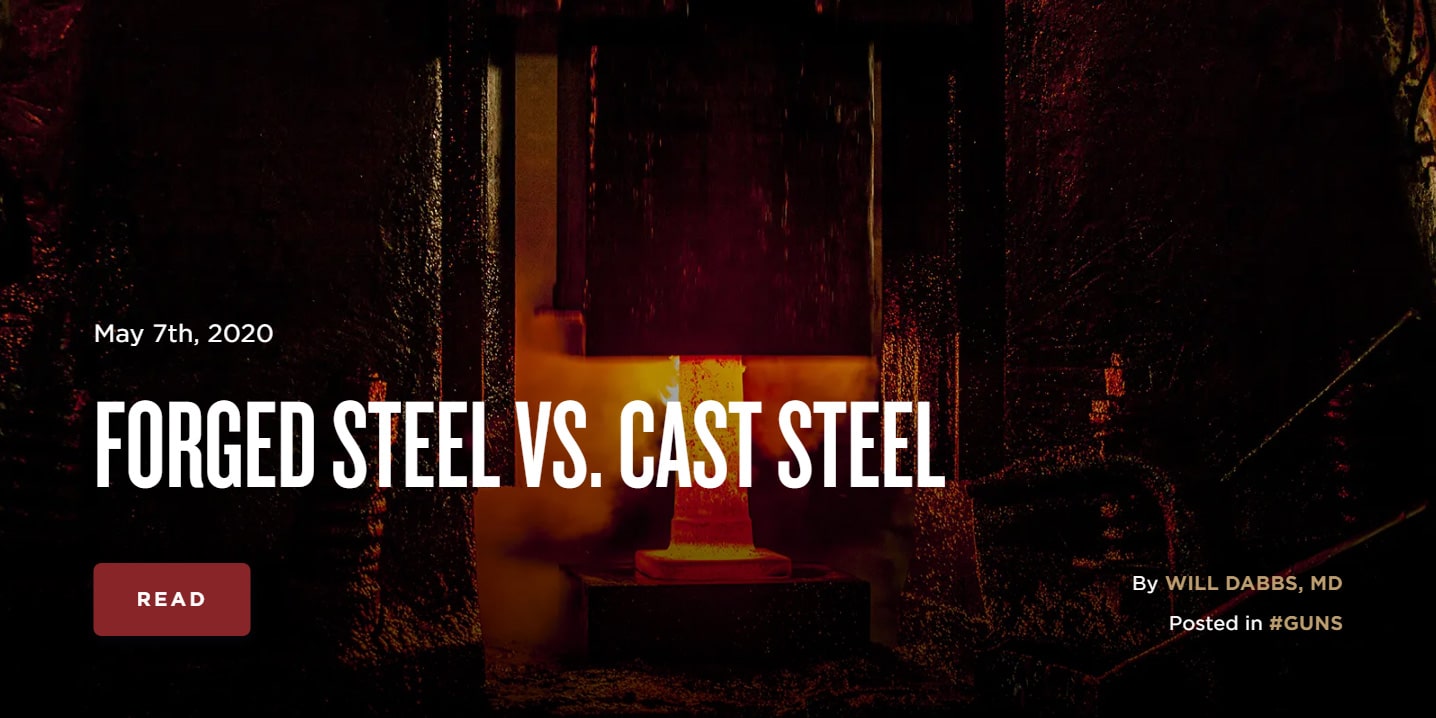Hello all, here is today's article posted on TheArmoryLife.com. It is titled "Forged Steel vs. Cast Steel" and can be found at https://www.thearmorylife.com/forged-vs-cast-steel/


Last edited:

Very informative read. Thanks for posting it Mike.Great article Mike, I have always wondered about this subject.
hipowr, I agree with you on this one. What if S.A. offered a forged receiver as an option on the M1A?Can you then comment on why Springfield continues to use cast receivers for the M1A? Don't get me wrong, i've had several cast SA receivers over the years, as well as other brands. I've never had any issues related to them. I also don't put that many rounds through my M1A. The trend now though seems to be towards forgings again for this part. What is the life expectancy of a cast M1A receiver vs. a forged one? What is the cost difference? In light of Springfield's reliance on forgings for 1911 components, which arguably are far less stressed then an M1A receiver, why the casting?
AJ
The cost of all new M1A rifles would go way up if they switched to forged receivers.What if S.A. offered a forged receiver as an option on the M1A?
Hello Blackfeather. Yes, you're no doubt right on the increased price on M1A's if all the receivers were forged. I have a Scout Squad and have had no problems with it, it's a fine shooter and I don't see it wearing out anytime soon. I had read somewhere that there are aftermarket suppliers that sell forged receivers for the M1A and was wondering if S.A. might consider offering their own for special ordered models, or just as an optional replacement for existing rifles. Just wondering.The cost of all new M1A rifles would go way up if they switched to forged receivers.
If you want a forged receiver, James River Armory makes their BM59 and Fulton Armory has a few to choose from...Can you then comment on why Springfield continues to use cast receivers for the M1A? Don't get me wrong, i've had several cast SA receivers over the years, as well as other brands. I've never had any issues related to them. I also don't put that many rounds through my M1A. The trend now though seems to be towards forgings again for this part. What is the life expectancy of a cast M1A receiver vs. a forged one? What is the cost difference? In light of Springfield's reliance on forgings for 1911 components, which arguably are far less stressed then an M1A receiver, why the casting?
AJ
LRB has been a consistent source of forged receivers.Hello Blackfeather. Yes, you're no doubt right on the increased price on M1A's if all the receivers were forged. I have a Scout Squad and have had no problems with it, it's a fine shooter and I don't see it wearing out anytime soon. I had read somewhere that there are aftermarket suppliers that sell forged receivers for the M1A and was wondering if S.A. might consider offering their own for special ordered models, or just as an optional replacement for existing rifles. Just wondering.
